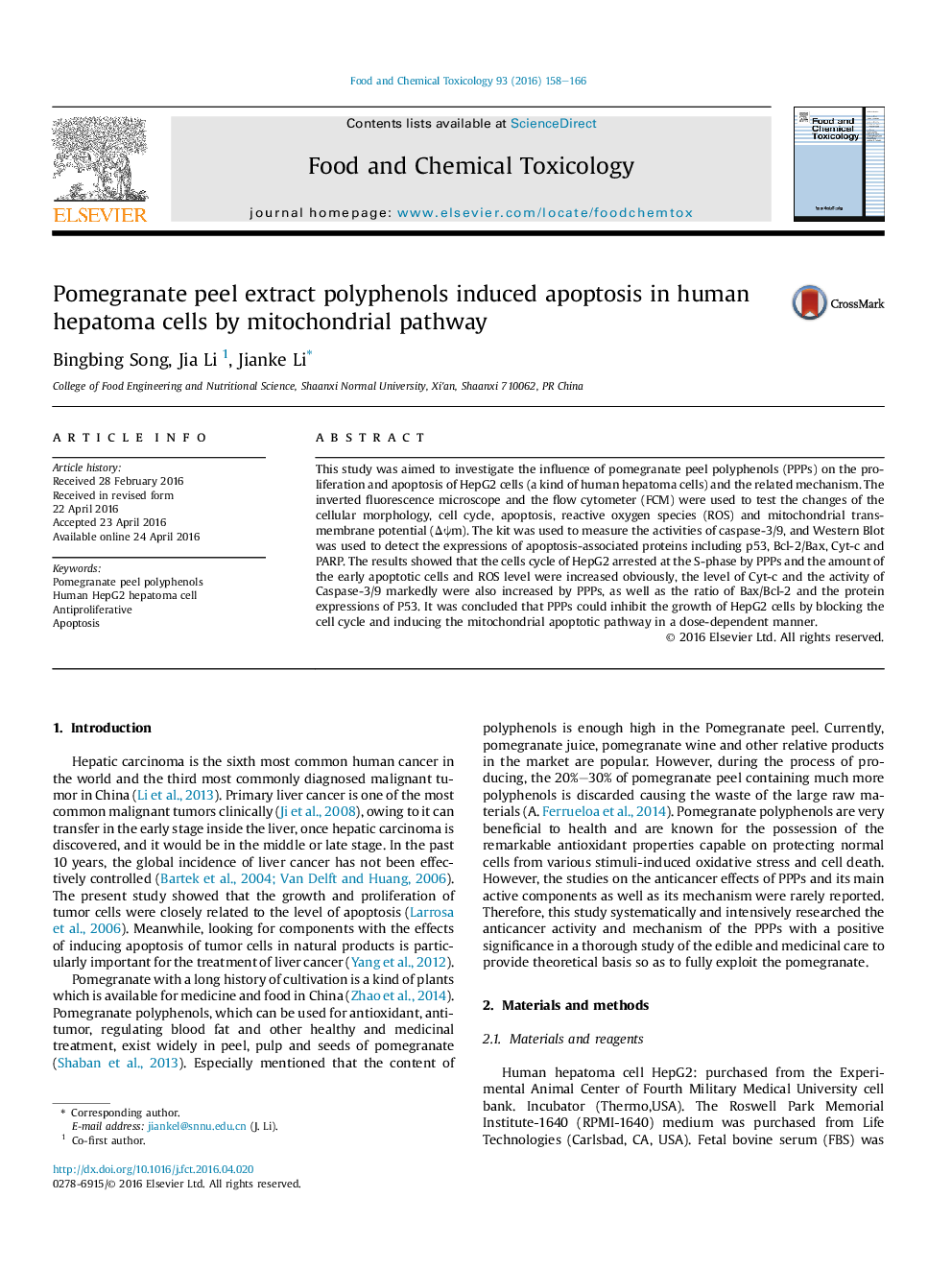| Article ID | Journal | Published Year | Pages | File Type |
|---|---|---|---|---|
| 5849273 | Food and Chemical Toxicology | 2016 | 9 Pages |
â¢This study systematically and intensively researched the anticancer activity of PPPs.â¢And the study indicates that PPPs can induce apoptosis of HepG2 cells via the intrinsic mitochondrial pathway regulation.â¢The research provides the theoretical basis for the further study of polyphenols, and PPPs play a supportive role in natural agents to the treatment and prevention of human liver cancer and health care.
This study was aimed to investigate the influence of pomegranate peel polyphenols (PPPs) on the proliferation and apoptosis of HepG2 cells (a kind of human hepatoma cells) and the related mechanism. The inverted fluorescence microscope and the flow cytometer (FCM) were used to test the changes of the cellular morphology, cell cycle, apoptosis, reactive oxygen species (ROS) and mitochondrial transmembrane potential (ÎÏm). The kit was used to measure the activities of caspase-3/9, and Western Blot was used to detect the expressions of apoptosis-associated proteins including p53, Bcl-2/Bax, Cyt-c and PARP. The results showed that the cells cycle of HepG2 arrested at the S-phase by PPPs and the amount of the early apoptotic cells and ROS level were increased obviously, the level of Cyt-c and the activity of Caspase-3/9 markedly were also increased by PPPs, as well as the ratio of Bax/Bcl-2 and the protein expressions of P53. It was concluded that PPPs could inhibit the growth of HepG2 cells by blocking the cell cycle and inducing the mitochondrial apoptotic pathway in a dose-dependent manner.
